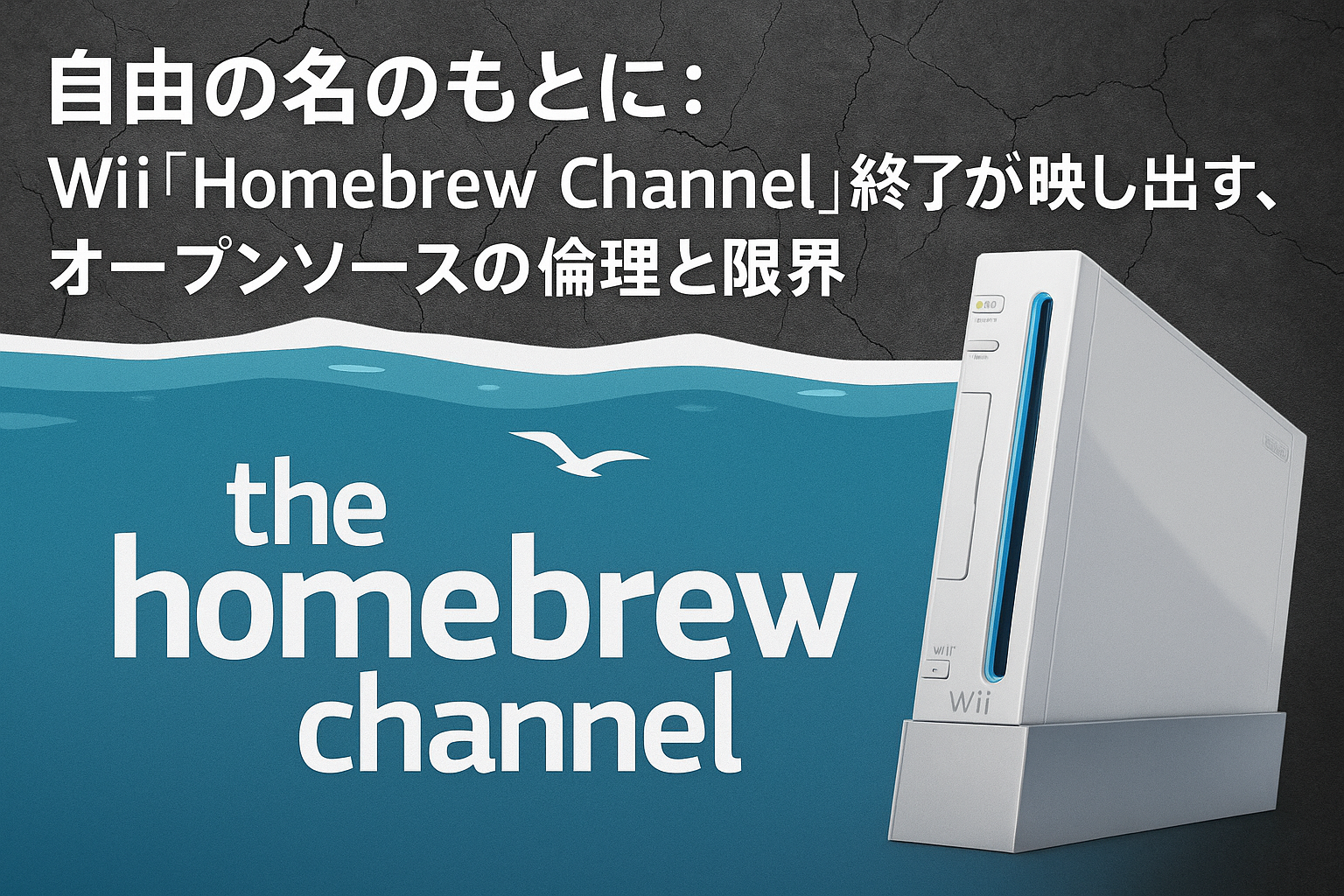After a decade of support from Wii users, the unofficial application installer Homebrew Channel has suddenly announced the end of its development. The reason: a copyright infringement issue lurking within its foundational tool, libogc. This incident casts a critical light on the transparency and trustworthiness of open-source development—and challenges our assumptions about the nature of “freedom.”
A Hidden Past Confronts a Longstanding Project
For over ten years, Homebrew Channel served as a gateway for users to run various custom apps on the Nintendo Wii, fostering a unique and vibrant community. At its core was libogc, a development kit tailored for Wii. However, it has now come to light that much of libogc‘s code was plagiarized—taken directly from Nintendo’s SDK and games, and even from another project called RTEMS without proper permission.
The Developers’ Dilemma: “We Had No Choice”
Hector Martin, lead developer of Homebrew Channel, revealed that although he was aware of libogc’s problematic origins, he felt compelled to continue using it. The lack of viable alternatives and the existing ecosystem built around libogc left him with no practical choice. This situation highlights the troubling reality of “dependency chains” and “blind trust” that many open-source projects face.
The “Freedom” and “Responsibility” of Open Source
An RTEMS developer commented, “Our code is free to use—but license and copyright notices must be respected.” This underscores the fact that open-source “freedom” is not a lawless free-for-all, but something that must operate within legal and ethical boundaries.
Mismatched Understandings and the Absence of Dialogue
In response, libogc developers argued that it wasn’t a clear-cut case of plagiarism and that they merely drew on structural concepts. This highlights the blurry line between originality and imitation in software development. However, hostile responses to criticism, including the deletion of issues and hostile comments, severely damaged the trust within what was supposed to be an open, collaborative community.
The Fragility of an Ecosystem Built on Trust
The issue with libogc is not merely the downfall of one project. Since many unofficial Wii apps rely on this library, future maintenance and derivative development may be significantly impacted. In the open-source world, built on mutual trust, even isolated ethical violations can undermine the credibility of the entire ecosystem.
The demise of Homebrew Channel was not due to technical limitations, but to a breakdown in ethics and trust. For open source to remain a symbol of “free development,” it must be grounded in respect for licensing and intellectual property. This incident should serve as a moment of reflection—for developers, users, and the community alike—to reconsider the true meaning of both freedom and responsibility.

